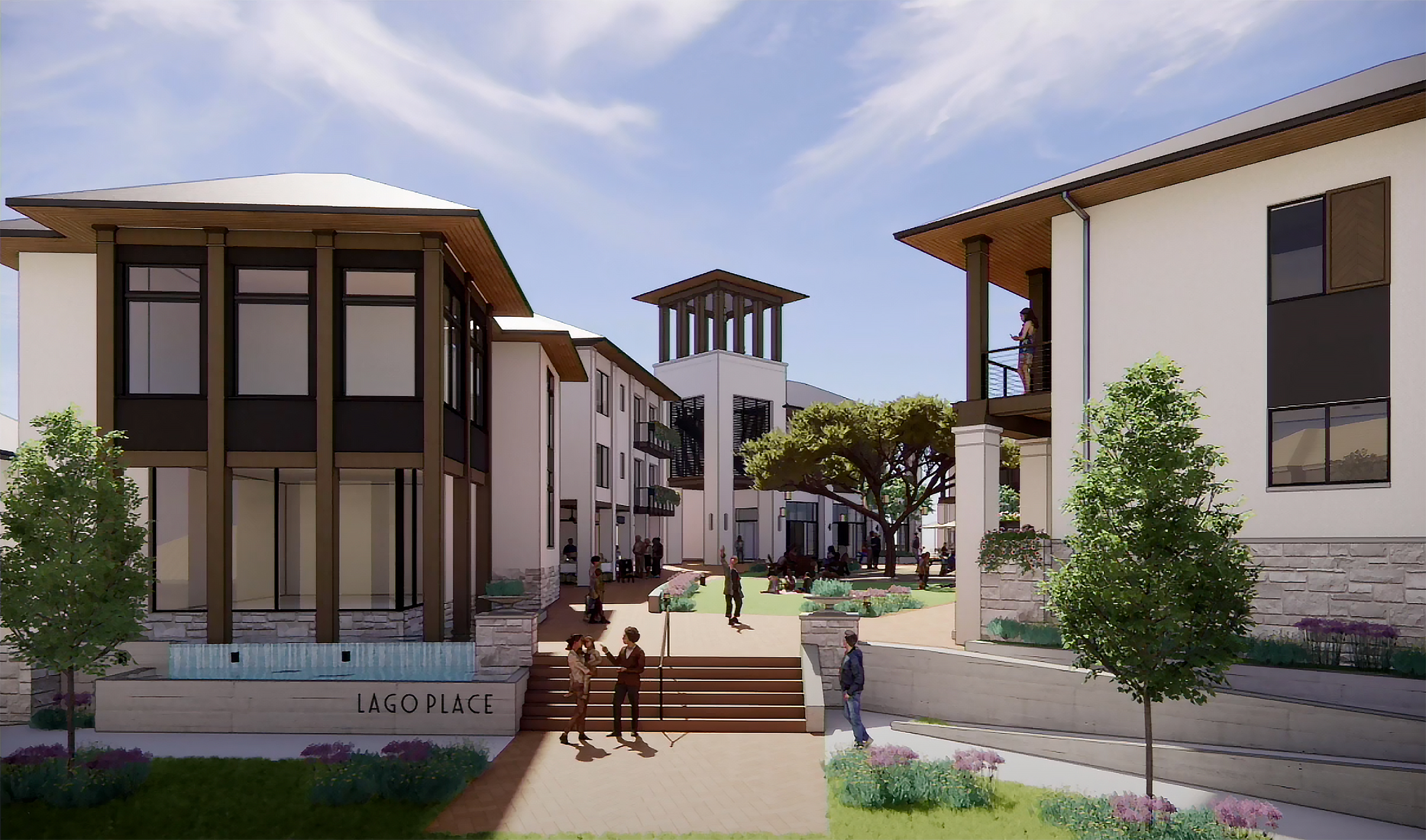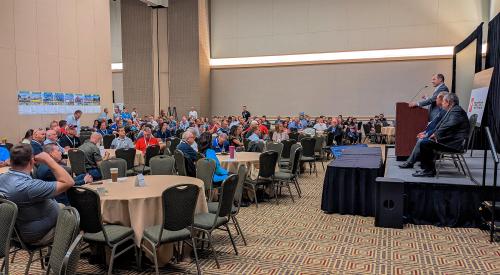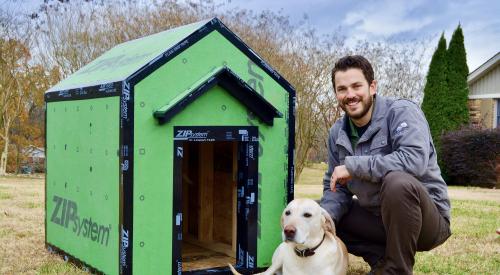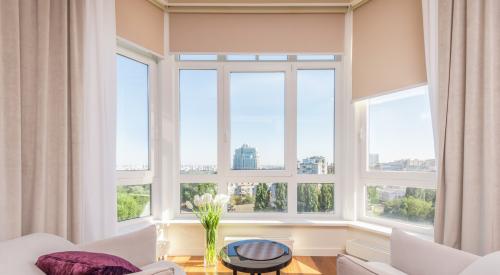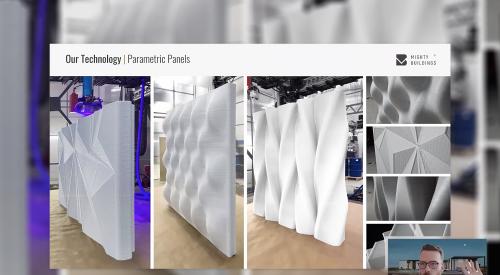When it comes to custom home building, every project is a prototype. There’s a gamble—some uncertainty for the builder in creating unique properties each and every time. What if there was a way to build and sell homes that are highly-customized, design-optimized, and not too time-intensive?
Jesse and Danielle Younger of Younger Homes have found a way to do just that. Founded in 2017, Younger Homes has quickly become one of the fastest-growing companies in the U.S.—making the Inc. 5000 list for 2022. What sets the company apart from other builders? Younger Homes believes its from achieving the highest level of sustainability and quality designations in the home building industry, including EnergyStar, EPA Indoor airPLUS, and Zero Energy Ready Home Certifications.
Other than building sustainably, Younger Homes has begun implementing virtual design software to develop its ambitious mixed-use community, Lago Place.
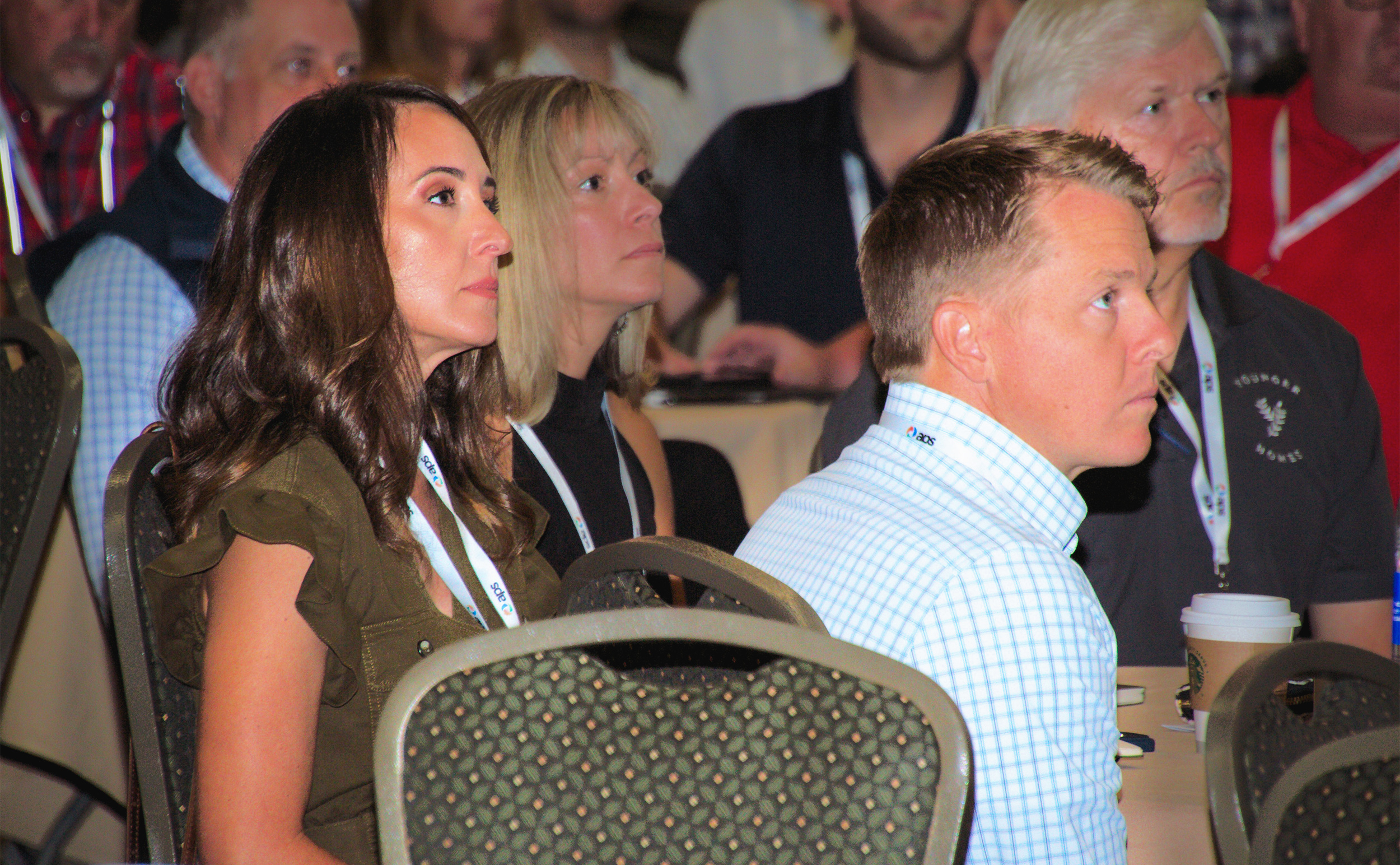
THE FUTURE OF HOUSING WITH DIGITAL TOOLS
As a part of Younger Homes’ core team, Digibilt—a digital modeling software company—acts as its partner in product design, placemaking, and development. Digibilt does more than use Revit BIM tools, though.
Digibilt and the Younger team break a home down into a component sub-assembly level, and design rooms that are reconfigurable in many different ways. While still having the same design for the home’s living room, dining room, and kitchen, Younger Homes is able to use its versatile design plans to mix and match the pieces.
In one example, the team shows how they’ve crafted 25 different living experiences from one single design footprint. Younger achieves this by visually reordering the rooms in both 2D and 3D space.
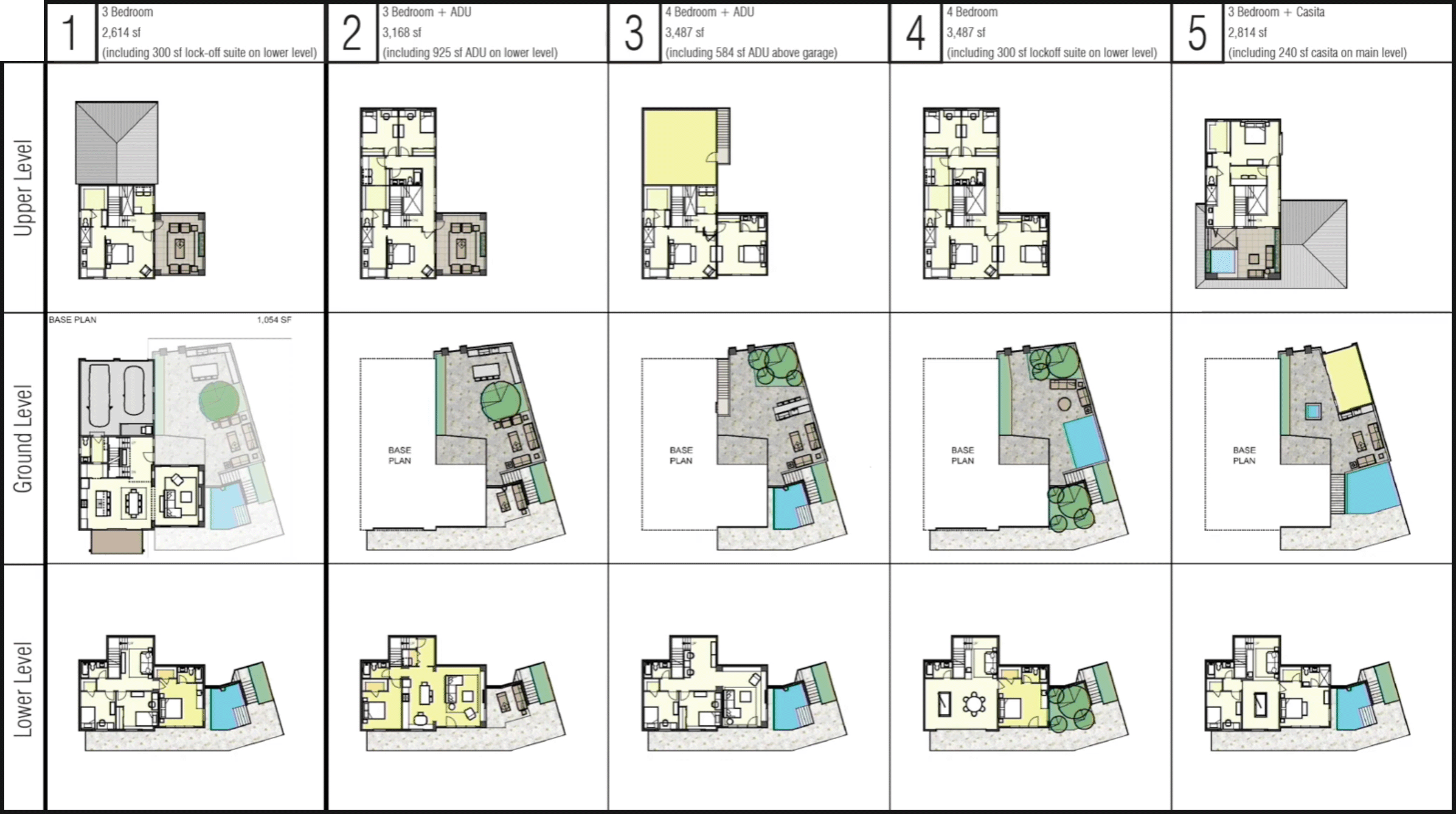
The digital technology of Digibilt helps the team confirm what will and won't work with each dimension. With everything virtually designed to scale, Younger is able to toy with unconventional floor plans and sizes prior to physically building anything.
“This development is going to be like a manufacturing operation with ‘mass-customized’ homes,” says Jesse Younger, co-founder, Younger Homes.
THE LAGO PLACE CUSTOM HOME BUILDING VISION
For Younger Homes, the vision is clear: Develop something special that the community needs and loves, with a wide variety of affordable, sustainable housing options. For the Lago Place mixed-use community, this is done through integrating product design and detailed planning.
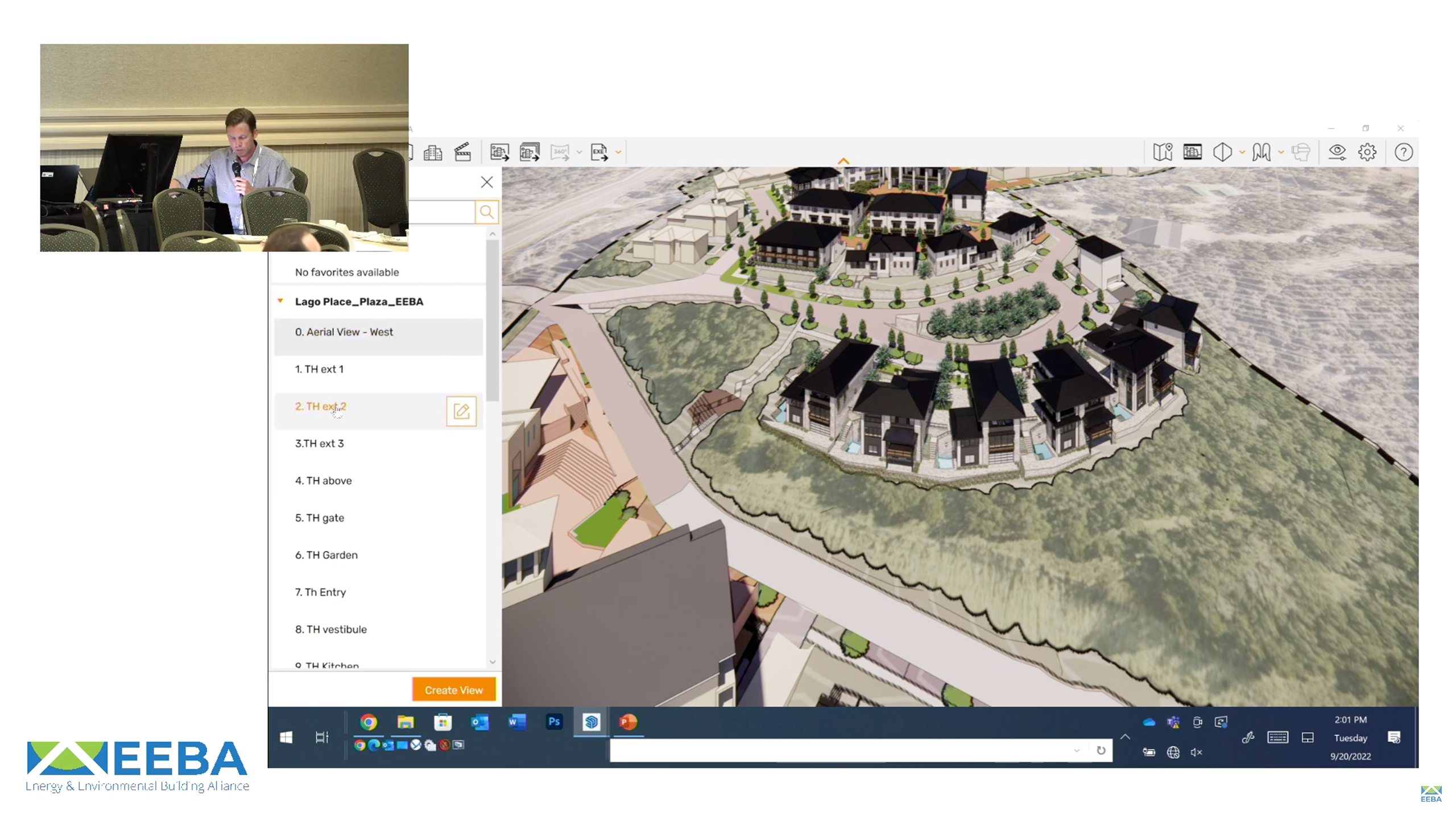
One of the company’s methods is configuring homes in a way that enables future-proofing. Putting ADUs in empty spaces, or structuring a home to be Airbnb- or renter-friendly, for example.
The team is mindful, though, not to segregate building types in the community. Through a detailed segmentation plan, the residences integrate throughout the community, dismantling the idea that “single-family homes go here” and “apartments are over there.”
In Younger Homes’ mixed-use community, special attention is made in crafting beauty in the small details. From a unique, ‘theatrical’ stairway between two homes, to connecting locations through vistas and memorable landmarks, the team emphasizes thoughtful density and walkability.
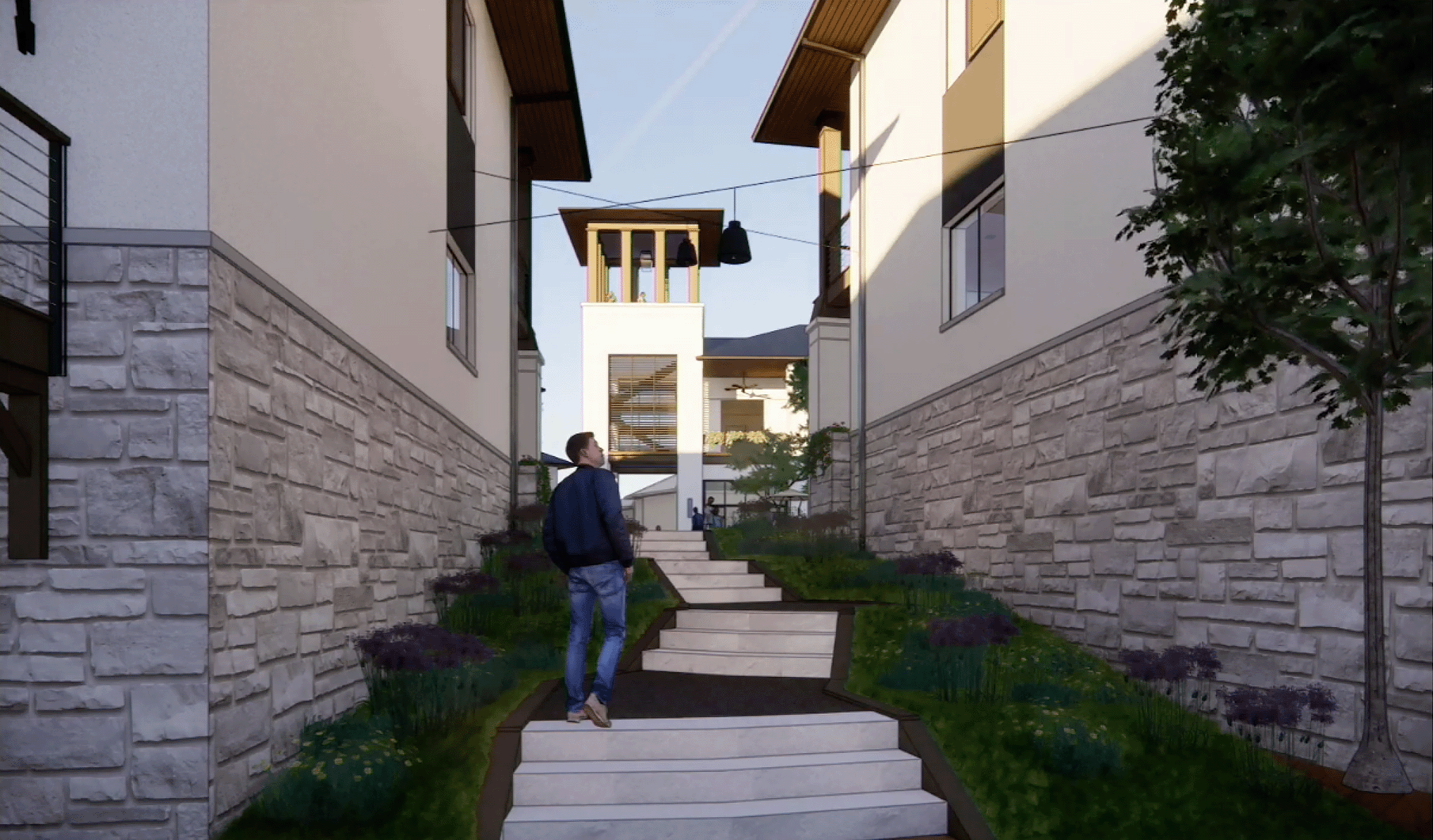
Additionally, Younger believes that naming individual areas in the community will increase residents’ connectivity with the space and with one-another.
All of this can—and is—visualized in the Digibilt software. One could take a first-person tour through each fully-furnished home, or virtually walk through the town square. It’s digitized homebuilding at its finest, as Sam Rashkin, founder of Housing 2.0, can attest to.
“My fear is that people may not realize how important this really is. High-performance homebuilders just have to be industry leaders, and what Younger Homes is doing is transformational,” says Rashkin.
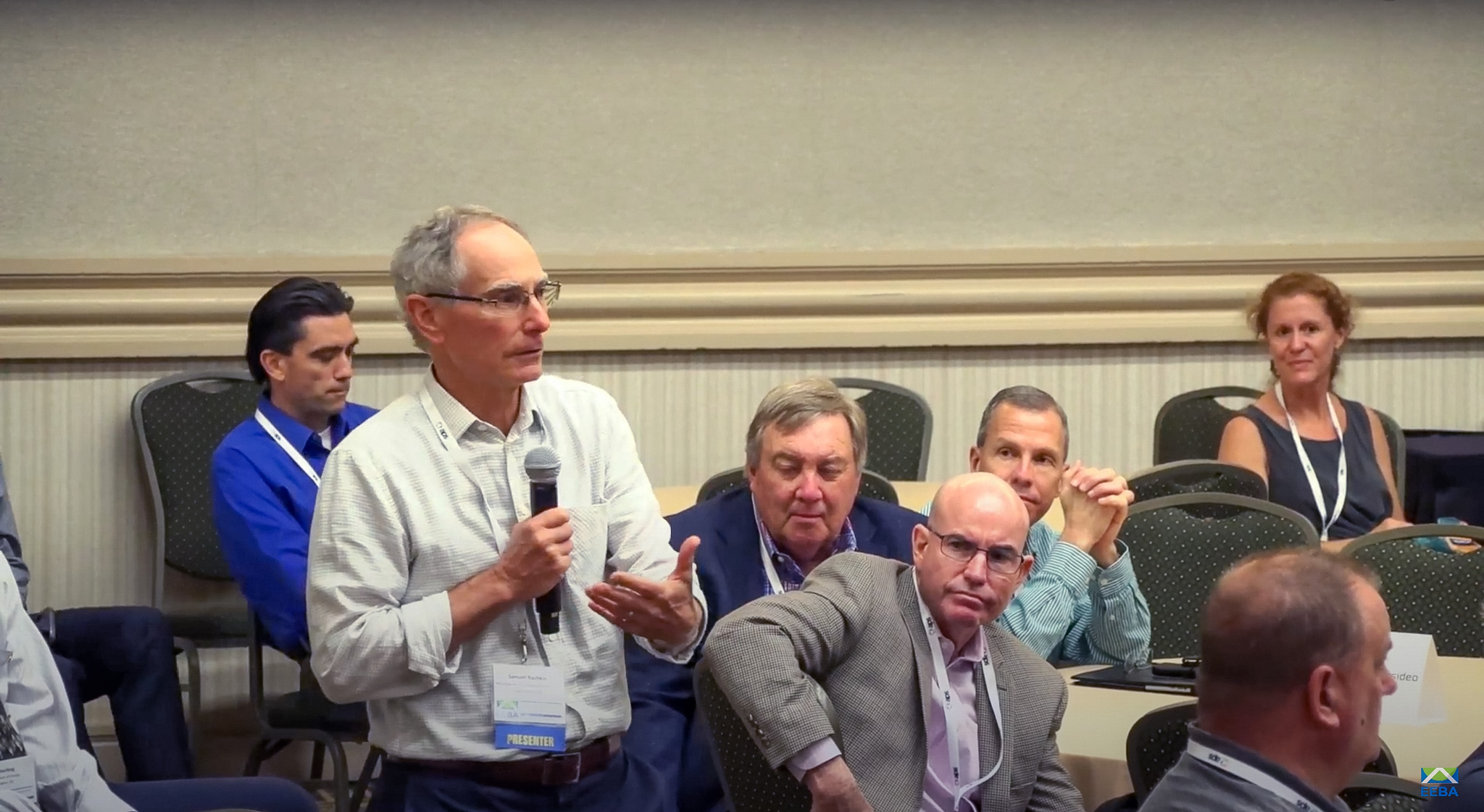
Rashkin shared his appreciation during Younger Homes’ and Digibilt’s presentation at the 2022 EEBA High Performance Home Summit. According to him, this process is the future of housing. “With the amazing assistance of Digibilt, this is not just another case study, it’s the start of this kind of development,” says Rashkin.
RELATED: How to Digitize the Homebuilding Process
Guess what? We've got a TikTok (and Instagram Reel) video of Sam Rashkin sharing his thoughts on the project, and what it means for the future of housing. Click here to watch.


